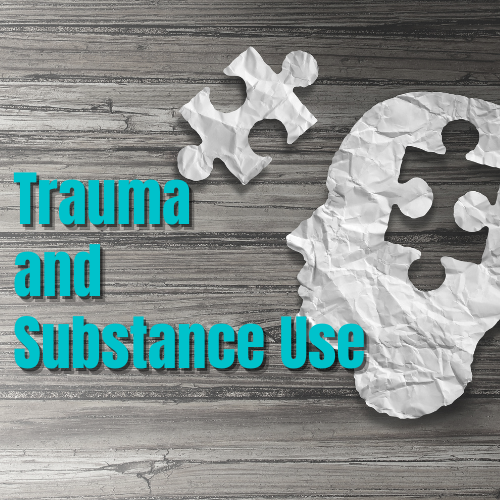
Trauma and Substance Use
How are trauma and substance use connected?
There is an incredibly strong link between trauma and substance use. Children who experience trauma are five times more likely to misuse substances, in particular alcohol. Additionally almost two-thirds of people with substance use disorders endured some type of childhood trauma. These can include physical abuse, sexual abuse, rape, emotional abuse, neglect or malnutrition. And many of these experiences can lead to self-medication, especially without treatment or counseling and a development of PTSD (Post-Traumatic Stress Disorder).
Post-Traumatic Stress Disorder and substance use
It is very common for people with a traumatic background to “treat” themselves with substances to manage their stress, triggers or symptoms. Over time a tolerance is developed which leaves them using a much higher amount then when they began.
Signs and symptoms
There are four categories of symptoms.
- Intrusive thoughts
- Repeated, involuntary memories or distressing dreams. At times flashbacks can feel so real to the person they feel as if they’re reliving the experience.
- Avoidance
- Not going to places or seeing people that remind them of what happened.
- Trying not to think or have any feelings about the situation.
- Negative thoughts or feelings
- Believing that no one can be trusted, they are a bad person and having guilt or shame. Feeling detached or estranged from people is also another symptom.
- Arousal or reactivity
- This can include being irritable or having angry outbursts and can include reckless or self-destructive behavior.
Depending on the person and details of the experience, symptoms may not appear for months or years. But in some cases it is immediate.
Services to treat PTSD
Therapy for PTSD focuses on relieving symptoms by a variety of treatment types.
- Exposure therapy
- Through a number of systematic techniques, a person is gradually exposed to the trauma in a safe environment where they can lower their anxiety and decrease avoidance.
- Cognitive restructuring
- This helps people identify, challenge and alter stress-inducing thought patterns and beliefs. The goal is to enable people to replace stress-inducing thought habits with more accurate ones.
- Talk therapy
- Traditional form of counseling when the person talks about the things that are troubling and get help clarify them and put them in perspective.
How to find a PTSD Therapist
When looking for a mental health professional to specifically treat PTSD, it’s a good idea make sure they specialize in treating trauma. Most primary care providers can provide a list that has experience treating PTSD. There are mental health professionals here at Lifeline Connections to work with you every step of the way and online support groups. Learn more about our mental health programs.
Help yourself while in treatment
- Engage in mild physical activity or exercise to help reduce stress
- Set realistic goals for yourself
- Break up large tasks into small ones, set some priorities, and do what you can as you can
- Try to spend time with other people, and confide in a trusted friend or relative. Tell others about things that may trigger symptoms.
- Expect your symptoms to improve gradually, not immediately
- Identify and seek out comforting situations, places, and people
Get co-occurring treatment
Lifeline Connections commits to long-term wellness for our patients. For example, we offer an integrated, holistic approach that includes substance use disorder treatment, therapy and case management. For example, our doctors specialize in the treatment of co-occurring mental health and substance use disorders, working to solve ones that have a compounding effect. Above all contact us and reclaim your life.
Contact a doctor for a referral or find a therapist. Additionally, they can work to design a custom plan for wellness. Further, secure treatment is over the phone or computer with telehealth, providing coping skills for grief, loss, depression and anxiety. Moreover, they will work with you one-on-one to get you feeling better.
